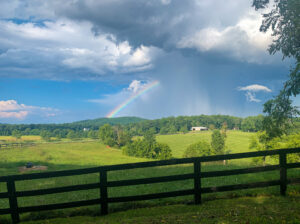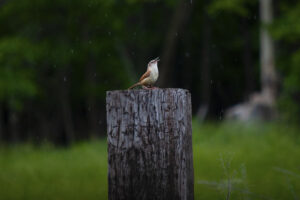Creative Express Theatre Residency
Lesson Title: Creative Express Theatre Residency
Length of Lesson: Five 3-hour workshops
Connections to SOLs: Arts, Langauge Arts, History, & Science
Objectives: Students will work with Theatre Artist(s) to create original works of theatre. Students will apply processes and skills in acting, directing, designing, and scriptwriting to create informal theatre and to perform it at a “World Premier” event. Students will collaborate as an actor and scriptwriter in creating an original theatrical performance. Students will develop characters following creative brainstorming session. Students will work with Art Instructor(s) to create all costumes, sets, and props.
Essential Questions:
- What are the three tools of an Actor? (Body, Face, & Voice)
- What are three basic elements of creating a story? (Who, Where, & What)
- What are three basic elements in preforming theatre? (Projection, Blocking, & Focus)
- What are three basic elements of presenting a character? (Voice, Costume/Props, & Action)
Instructional Strategies:
Day 1:
- Introduction and Overview
- “Get to Know You” Theatre Games
- Theater Warm-up: The Actor’s Tools
- Body
- Face
- Voice
- Theatre is telling a story
- Three Elements of Story Theatre Games
- Who – Group Photos
- Where – Walking Through Where
- What – Add Onto Where
- Tour the Museum Exhibit and brainstorm character ideas. The students are instructed that they are allowed to choose any character to be, based on their museum tour.
- Students are divided into 2 groups (A & B) or have already been based on age.
- In their individual groups, students continue the brainstorming process as they choose characters and relationships
Day 2: Each group will have individual 1 ½ hour workshops with the Theatre Artists. While one group (Group A) is with the Theatre Artists, the other group (Group B) is working with the Art Instructors to begin creating simple costume, set, and 1 prop per student.
- Warm Up Theatre Games
- Body, Face, & Voice
- Who, Where, & What
- Finalize Character Choice
- Create an Outline to the Story
Day 3: Individual 1 ½ Group Workshops continue.Art Instructors continue with helping the students create their costume and one prop. Also, painting the scenery (backdrop) will begin.
- Warm Up Theatre Games
- Body, Face, & Voice
- Introduce
- Projection: having your voice carry to the back of the auditorium
- Blocking: Explore Upstage, Downstage, Stage Left & Stage Right
- Focus: Follow the action of the scene with your eyes
- Finalize Story Outline
- Stage the Story
- Students will walk through entrances, exits and where their character will stand onstage
- Students will have an opportunity to add lines (What would your character say here
Day 4: Individual 1 ½ Group Workshops continue.Art Instructors will continue work on costume, sets and props.
- Warm Up Theatre Games
- Body, Face, & Voice
- Projection & Focus
- Each Student is given a script of their original work of theatre
- The Narrator will read the story to audience while the students perform the action and lines (The Narrator is also a safety net to provide the students their line should they forget).
- Rehearse
Day 5: All costumes, sets and props are completed.Simple programs are printed.
- Warm Up Theatre Games (very brief)
- Body, Face, & Voice
- Each group has a Dress Rehearsal (1 hour)
- Each group performs their original work of theatre, with a World premiere fanfare, to the other group, parents, and invited guests
- Reception and snacks afterward
Assessment: Students will perform their “World Premiere” of their original work of theatre in front of their fellow students and selected invited guests.
Closure: Students can write a brief summary of their experience giving three specific examples.
Modification:This residency can be modified to encourage Historical characters of a specific time or genre. And it has been done using Scientific elements (Gold, Helium, Neon …) as the inspirations for the characters.

